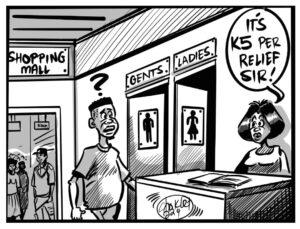NEWS Diggers Media Limited has submitted to the Lusaka High Court that the donation of K1,000,000 worth of supplies by the National Pension Scheme Authority (NAPSA) to the Ministry of Health to help in the mitigation and containment of COVID-19 does not make the authority independent of government.
The media house has further submitted that pursuant to the provisions of the NAPSA Act, government exercises extensive control over NAPSA through the Ministry of Labour and Social Security, and Parliament.
This is a matter in which NAPSA has sued ADD president Charles Milupi and News Diggers Media Limited seeking damages for libel and malicious falsehood over a publication that allegedly accused it of corruption and mismanagement of members’ funds.
The said publication was published on June 23, last year, and was headlined: ‘The NAPSA, AVIC deal stinks of corruption.’
However, News Diggers! asked the Court to dismiss the matter for not disclosing the cause of action, and further argued that NAPSA, being a public body, was not entitled to sue for defamation.
“The plaintiff, being a public body and performing government functions, is not entitled to bringing any action for defamation or malicious falsehood on allegations of corruption,” it stated.
But NAPSA senior procurement manager Justine Mwiinga argued that like any other corporation, NAPSA may sue to protect its corporate image and reputation.
He explained that the functions of NAPSA were prescribed in the NAPSA Act, Chapter 258 of the laws of Zambia, a law enacted by the National Assembly as established under the Constitution.
Mwiinga further stated that NAPSA was independent of government and performed all acts and decisions that any other company may by law undertake or perform.
He stated that as a demonstration that the company makes and operates independently, it joined several other corporate entities in assisting government in its efforts to contain the COVID-19 pandemic when, on March 23, 2020, it donated K1,000,000 to government as part of its corporate social responsibility.
But in an affidavit in reply to the plaintiff’s affidavit in opposition of summons to strike out statement of claim and dismiss matter for not disclosing cause of action, News Diggers news editor Mukosha Funga stated that, “as stated by the plaintiff (NAPSA), NAPSA’s statutory functions are to implement the policy relating to the National Pension Scheme in accordance with the NAPSA Act, chapter 256 of the laws of Zambia.”
Funga stated that the National Pension Scheme policy falls under the national social security policy set by government through the Ministry of Labour and Social Security.
She stated that pursuant to the provisions of the NAPSA Act, government exercises extensive control over NAPSA, and that of its corporate image, if any, and that its separate legal personality, which had been so much emphasised by Mwiinga, was immaterial to the determination of the application.
“The number of alleged articles and publications alleged to have been made by the defendants are equally not relevant to the determination of this application. The donation of K1,000,000 worth of supplies to the Ministry of Health to help in the mitigation and containment of the Coronavirus does not make the plaintiff independent of government and that the plaintiff is not the only government institution that made such donation,” stated Funga.
She added that by way of example, the Zambia Revenue Authority (ZRA) equally made a donation of K1,000,000 to the Ministry of Health and the same does not make ZRA independent of government.
And in its skeleton arguments and list of authorities in reply, News Diggers! insisted that NAPSA’s statement of claim be struck out for not disclosing any cause of action and that the matter be dismissed with costs.
It further insisted that NAPSA could not sue for defamation whatsoever because it was a government institution.
“As regards the claim for malicious falsehoods, and particularly in Zambia, our submission is that the plaintiff may sue on false and malicious accusations relating to issues other than corruption. Corruption is statutorily defined in Zambia and the statute does not provide for commission of corruption by corporate and public bodies,” stated News Diggers!












